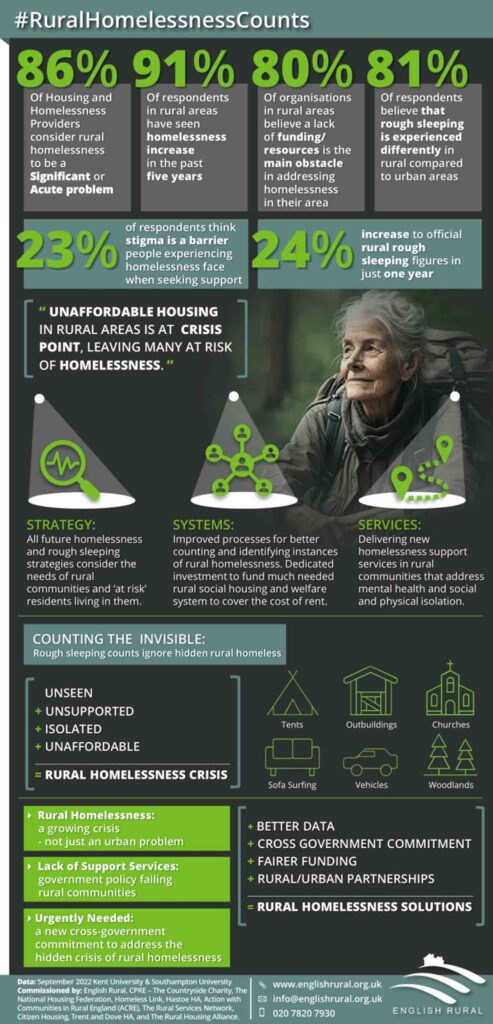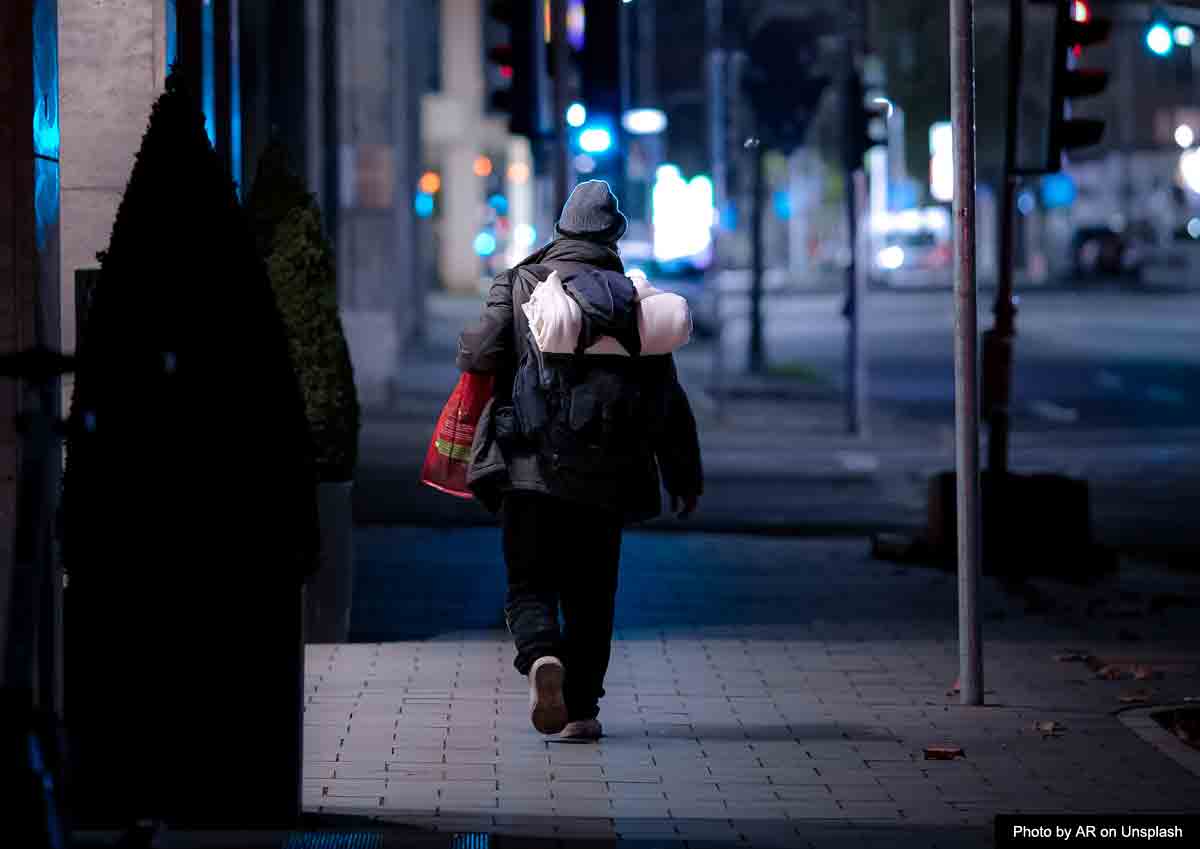By Gary Hughes… New University of Kent-led research on behalf of a coalition of rural charities and housing associations has revealed that the countryside is battling a ‘hidden homelessness’ crisis driven by soaring housing costs and a gaping shortfall in local authority funding.
The year-long study, which included a survey of 157 frontline support workers, service providers, NGOs, and shelters, found an overwhelming majority thought rural homelessness was a serious problem that was getting worse. Key findings, revealed in the report Homelessness in the Countryside: A Hidden Crisis, include:
- 91% of respondents in rural areas have seen homelessness increase in the past five years
- 83% of respondents in rural areas said their job had become harder in the past five years
- 81% of respondents believe that rough sleeping is experienced differently in rural areas compared to urban areas.
The study, which also involved academics from the University of Southampton, shows rural areas being paid a fraction of what they need to tackle homelessness in their communities.
An analysis of data from the Department for Levelling Up, Housing & Communities (DLUHC) seems to confirm the survey responses; it reveals a 24% increase in the number of people sleeping rough in rural areas from 2021 to 2022.
The researchers also conducted ethnographic research which involved interviewing more than 40 people including service providers and those experiencing homelessness themselves in four rural locations.
Kent’s Dr Carin Tunåker, Principal Investigator on the research, said: ‘One of our major findings is that rural homelessness is distinct from urban homelessness and requires specific policy attention. People sleeping rough in rural areas have difficulties accessing essential supplies like food and water, transport and support services. There is a rural price premium and specialist services, particularly mental health support are likely to mean travelling long distances.’
Martin Collett, chief executive of English Rural and co-chair of the research project, said: ‘This research shines a spotlight on a growing rural crisis hidden in plain sight. You see here the brutal reality beyond the insufficient official statistics. People who have no chance of affording a basic standard of living through no fault of their own. You don’t tend to see people sleeping rough in rural areas – but they’re there, normally hidden in agricultural buildings, outhouses, sleeping rough on farmland or condemned to an insecure life of sofa surfing. Because funding is so inadequate, many people are moving to urban centres for much needed support. It is in all our interests to fix this crisis.’
The recommendations of the report include dedicated investment to fund much needed rural social housing, increasing funding through the welfare system to cover the cost of rent, and new homelessness support services in rural communities that address mental health and social and physical isolation.

